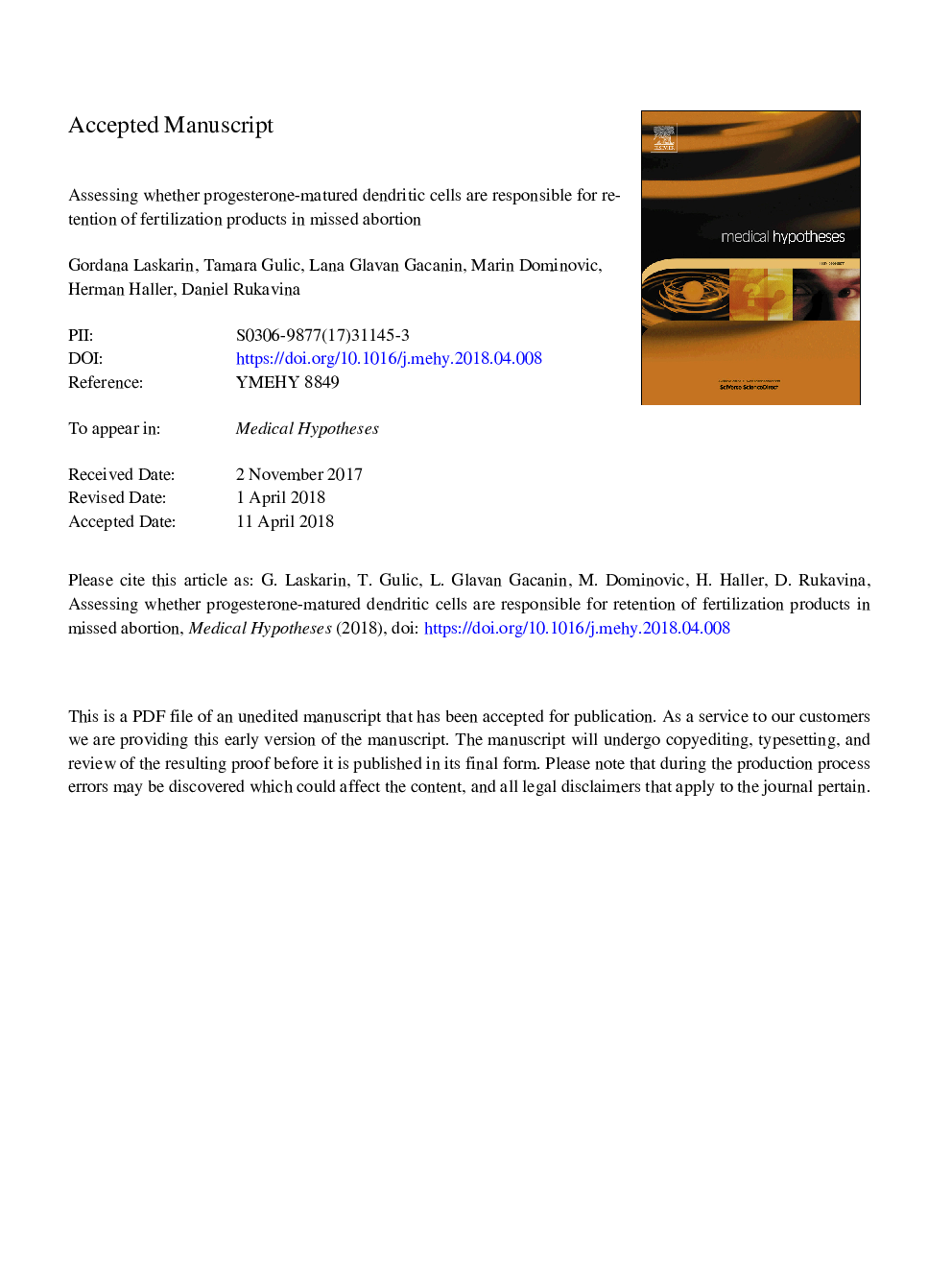| Article ID | Journal | Published Year | Pages | File Type |
|---|---|---|---|---|
| 8515339 | Medical Hypotheses | 2018 | 23 Pages |
Abstract
We hypothesize that progesterone causes tolerogenic maturation of myeloid dendritic cells (DCs) in human decidua of threatened miscarriage or missed abortion characterized by a distinct phenotype and cytokine production, including reduction of the main NK cell proliferation and cytotoxic factor interleukin (IL)-15. During DC/NK cell interaction, progesterone-shaped DCs cannot efficiently multiply or equip NK cells with the cytotoxic mediators peforin and granulysin, which might harm trophoblasts and induce abortion. We propose that the presence, and maturation stage of decidual myeloid DCs be investigated using semi-quantitative immunohistological analyses and/or double-color immuno-fluorescent labeling of DC lineage and activation markers. The spatial arrangement of granulysin+â¯cells, NKp46+â¯NK cells, DCs, and trophoblasts might provide information about their mutual interactions in vivo. Multiple flow cytometry analyses of NK-receptors would provide insight into NK cell activation status. NK cell activation status could be also assessed by cytotoxicity assays against trophoblast cell lines, or isolated cognate extra-villous trophoblast cells. A correlation between decidual progesterone concentration or IL-15 expression, and the degree of DC maturation or the frequency of granulysin+â¯cells, might help to elucidate the mechanism of abortion retention in utero.
Related Topics
Life Sciences
Biochemistry, Genetics and Molecular Biology
Developmental Biology
Authors
Gordana Laskarin, Tamara Gulic, Lana Glavan Gacanin, Marin Dominovic, Herman Haller, Daniel Rukavina,
